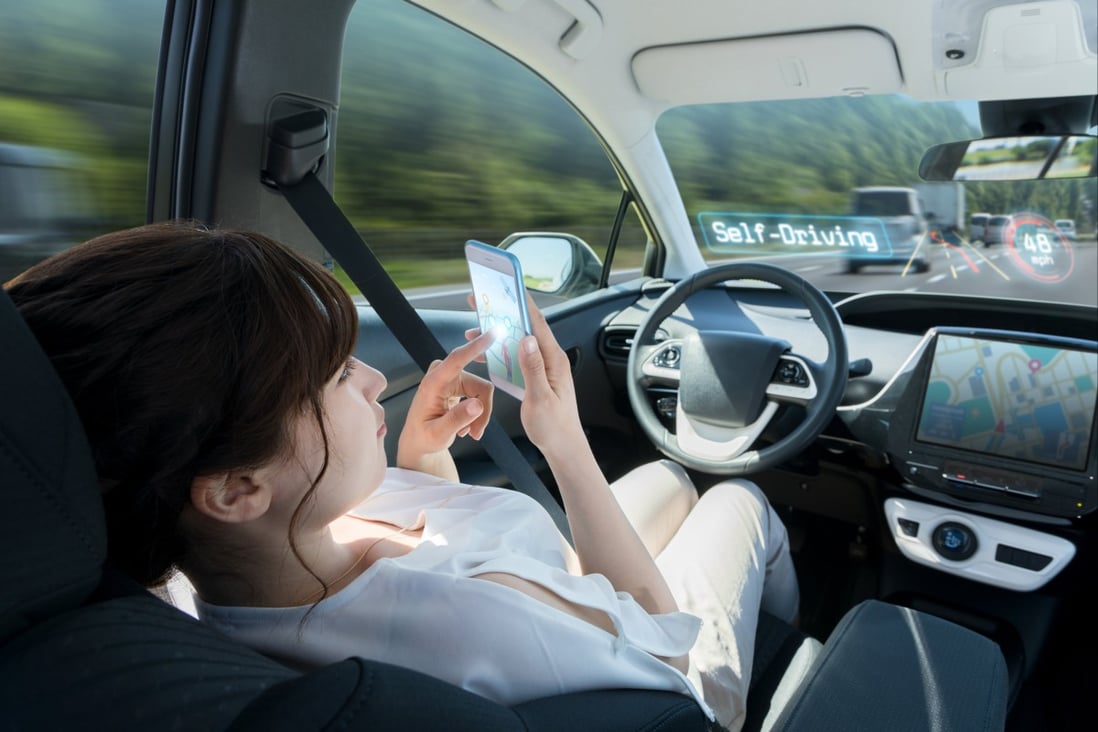Chinese researchers just won a top AI award. Will their algorithm be driving your next car?
- In tests, an autonomous driving technology based on a large-scale AI model outperformed similar systems, like Tesla’s Full Self-Driving
- The research could steer the tech for self-driving vehicles in an entirely new direction, expert says

Zhang Tong in Beijing
+ FOLLOW
Published: 8:00pm, 2 Jul, 2023

A Chinese research paper has for the first time shown that an integrated perception and decision-making autopilot system could be safer and more reliable than existing models. Photo: Shutterstock
Not long ago, the idea of vehicles that could drive themselves seemed like a dreamy, futuristic vision of transport. Then suddenly, vehicles with assisted driving were on the road. But the race to make fully self-driving vehicles, powered by autonomous driving systems, truly workable – and trustworthy – is far from the finish line.
In the global drive to perfect such a system, scientists in China have developed an autonomous driving technology based on a large-scale AI model, similar to the technology behind the revolutionary chatbot ChatGPT.
Their work, which could point to an entirely new direction for the industry, recently won a best paper award at a top academic conference.
According to some experts, the technology has the potential to significantly outperform systems currently being tested in vehicles, including Tesla’s Full Self-Driving (FSD).
At the Conference on Computer Vision and Pattern Recognition (CVPR) held by the Institute of Electrical and Electronics Engineers (IEEE) in Vancouver on June 21, a joint project by researchers from the Shanghai AI Lab, Wuhan University and SenseTime was awarded the event’s prize for best paper.
This year’s CVPR – a top annual event in the field of artificial intelligence and computer perception – received 9,155 submissions. Only a quarter of them were accepted, and just two of the submissions were worthy of the best paper award.
Faced with formidable competition from research submitted by leading universities and tech giants, including Google, Stanford and Cornell, it was the first time that Chinese scientists won the award.
Central to the research was a new autonomous driving algorithm called Unified Autonomous Driving (UniAD), a design that, according to testing, outperformed other mainstream autonomous driving models, including Tesla’s FSD.
In simulated driving tests using street scene data collected from Boston and Singapore, UniAD outperformed other autonomous systems by 20 to 30 per cent across various parameters, including tracking and prediction of other objects.

The Unified Autonomous Driving (UniAD) system, developed by a team of Chinese researchers, outperforms other models in simulated driving tests. Photo: Handout / Li Hongyang
What sets UniAD apart from most other industry solutions is that – for the first time – it integrates perception and decision-making, resulting in a driving system that follows a planning-oriented philosophy.
“To the best of our knowledge, UniAD is the first work to comprehensively investigate the joint cooperation of such a variety of tasks including perception, prediction and planning in the field of autonomous driving,” Li Hongyang, lead scientist with Shanghai AI Lab, said in the paper.
more@

